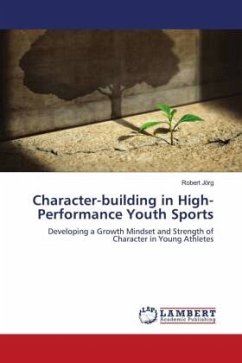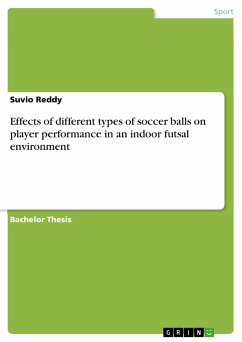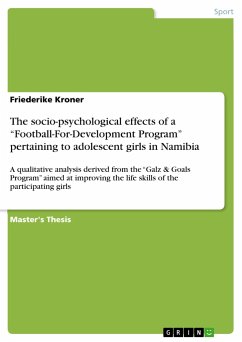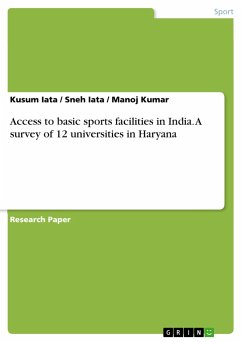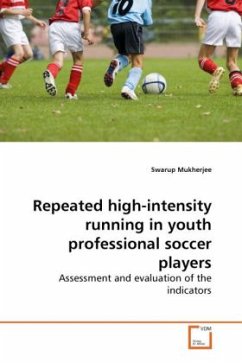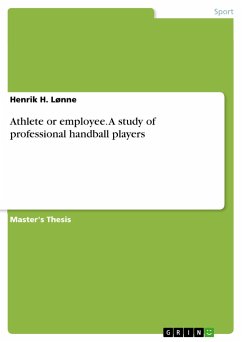
Athlete or employee. A study of professional handball players

PAYBACK Punkte
0 °P sammeln!
Master's Thesis from the year 2014 in the subject Health - Sport - Miscellaneous, Copenhagen Business School, language: English, abstract: Being an elite athlete was once just a hobby. Something you did on the side, while studying or working. In many sports, it is today changed into a professionalized industry, where the athletes are not just athletes seeking to win, but also employees, who depend on their sport to pay for their cost of living. This thesis investigates which attitudes and motivations of elite professional handball players in Denmark have towards employment in general and emplo...
Master's Thesis from the year 2014 in the subject Health - Sport - Miscellaneous, Copenhagen Business School, language: English, abstract: Being an elite athlete was once just a hobby. Something you did on the side, while studying or working. In many sports, it is today changed into a professionalized industry, where the athletes are not just athletes seeking to win, but also employees, who depend on their sport to pay for their cost of living. This thesis investigates which attitudes and motivations of elite professional handball players in Denmark have towards employment in general and employers specifically, and what makes some employers more attractive than others. The research topic is relevant not just for employers seeking to optimize their staff, but also for academics to understand a particular industry and profession, where the roots are in recreation rather than labour. What the research found is that while playing handball is a job or them, this has limited impact in their professional lives. In their daily motivation it is handball, not money, that motivates the majority of them, and for all of them it is important that their skills and performances are recognized. For the majority of the players, recognition is especially significant as it gives meaning to a job, which often includes sacrificing family time for the job. One area where the players have been touched by professionalization, however, is a willingness to place themselves before the employer, as they will remain loyal only as long as they are satisfied. What determines satisfaction and what makes an employer attractive is largely based on what the club can offer the player from a sporting perspective, however the club must live up to the players' wishes for salary and family considerations to be considered. However, another very significant factor for motivation and the attitude towards the employer is that the club lives up to the promises it makes, as players will react very negatively if they are broken. The findings should be relevant to employers within the handball industry, as the research has identified what things is part of determining motivation and presented an argument for why this is particularly important in professional sports. The findings also point to a need for further research into areas of motivational theory, where the findings and existing models do not match entirely.





